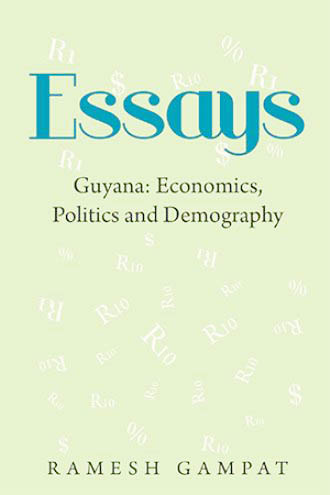By Baytoram Ramharack
Ramesh Gampat, Essays: Guyana – Economics, Politics and Democracy [Bloomington, Indiana, Xlibris, 2022, 635 pages].
The discovery of oil will produce unprecedented economic transformations of the Guyanese economy. It is unlikely though that the newfound national wealth from the oil and gas will guarantee a reduction of ethnic tensions even if it promotes economic prosperity and human development. That is, oil and gas could in fact be a curse rather than a blessing but more the former than the latter. That is one of Dr. Ramesh Gampat’s main thesis in Essays and other works: that economics is not the solution with Guyana’s dilemma. The extent of the benefits of Guyana’s newly discovered resource is dependent, in large part, on two inescapable factors that have and will continue to impact the Guyanese economy, namely political development and demographic shifts. This is another central thesis developed and examined in the 600-page book by Gampat, a former United Nations Development Programme economist who worked for three decades with the organization. Gampat’s study, titled “Essays: Guyana: Economics, Politics and Demography,” takes a serious look at the Guyanese experience, with these three factors (economics, politics and demography) playing central roles in his collection of essays that examine Guyana’s post-independence struggle to establish a functioning democracy amidst its ethnically divisive and contentious politics (he calls it tribal politics).

